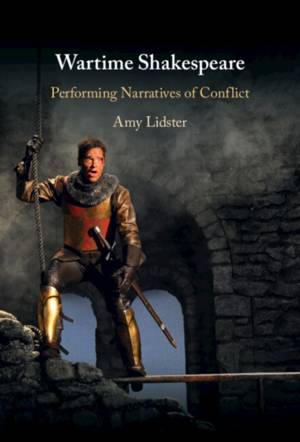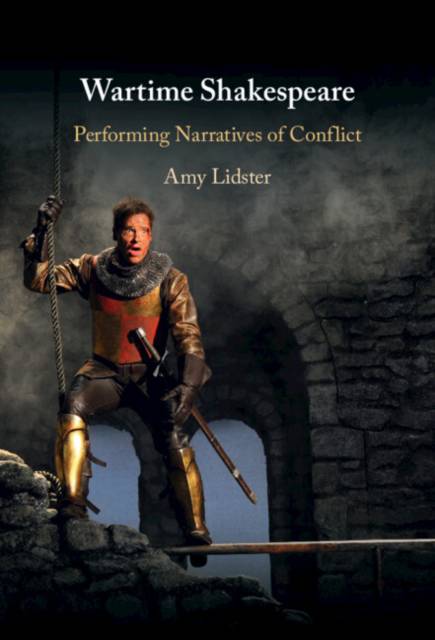
Bedankt voor het vertrouwen het afgelopen jaar! Om jou te bedanken bieden we GRATIS verzending (in België) aan op alles gedurende de hele maand januari.
- Afhalen na 1 uur in een winkel met voorraad
- In januari gratis thuislevering in België
- Ruim aanbod met 7 miljoen producten
Bedankt voor het vertrouwen het afgelopen jaar! Om jou te bedanken bieden we GRATIS verzending (in België) aan op alles gedurende de hele maand januari.
- Afhalen na 1 uur in een winkel met voorraad
- In januari gratis thuislevering in België
- Ruim aanbod met 7 miljoen producten
Zoeken
€ 158,95
+ 317 punten
Omschrijving
This is the first book-length, interdisciplinary study of how Shakespeare has been mobilized in performance at times of conflict spanning the eighteenth to the twenty-first century. It sets out a brand-new critical methodology that recognizes how wartime theatre is mediated by networks of production and reception that control its meaning and impact. Performances of Shakespeare's plays, like the texts themselves, do not have single or fixed meanings, and one production context often brings together conflicting agendas and responses. Amy Lidster explains how differing productions of Shakespeare shed light on issues at the heart of conflicts and negotiate concepts such as patriotism, commemoration, and propaganda. With wide-ranging transhistorical coverage, she argues that wartime Shakespeare is defined by its malleability and plural (mis)understandings, which determine its power to shape the experience of war, the political issues at stake during a period of crisis, and the construction of narratives of conflict.
Specificaties
Betrokkenen
- Auteur(s):
- Uitgeverij:
Inhoud
- Aantal bladzijden:
- 324
- Taal:
- Engels
Eigenschappen
- Productcode (EAN):
- 9781009356060
- Verschijningsdatum:
- 26/10/2023
- Uitvoering:
- Hardcover
- Formaat:
- Genaaid
- Afmetingen:
- 152 mm x 229 mm
- Gewicht:
- 603 g

Alleen bij Standaard Boekhandel
+ 317 punten op je klantenkaart van Standaard Boekhandel
Beoordelingen
We publiceren alleen reviews die voldoen aan de voorwaarden voor reviews. Bekijk onze voorwaarden voor reviews.









